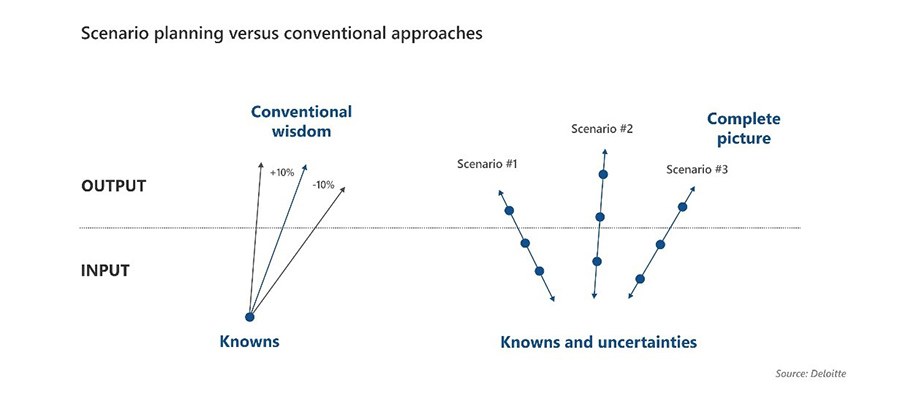
2018 was one among the golden years when many investment bankers basked in the warm glow of raining successes. Bulge brackets were going full throttle on digital transformations and opportunities blossomed. A rating among one of the highest-paying and highest network-potential jobs and, a rapidly stacking-up list of deal successes, capital availability, and profitability led regular Joes in investment banking to super-confident and complacent demeanors. This set was hardest hit by 2020 that waged a war on multiple fronts.
But, there was another set of investment banking professionals - of a few seasoned ones accustomed to the industry’s record of unprecedented jolts. This set was constantly adapting and viewed COVID-19 like any other challenge around which it needed to tweak its strategies. It swiftly did so and moved many rungs up, possibly beating the other set for a long time to come.
"Bottoms in the investment world don't end with four-year lows; they end with 10- or 15-year lows." – Jim Rogers
We’ve jotted down a list of lessons from these professionals. Take a look at these seven ways of shock-proofing your investment banking career.
You’ll need more than Microsoft Excel and PowerPoint skills. Many investment bankers on Wall Street are digging in programming skills like Java, C, Python, C#, and Ruby.
That’s for the present. In the near future, disruptive technologies like artificial intelligence and blockchain will become central to capital markets operations and tailored insights. Gaining knowledge of these can take your CV substantially up in the pile.
“Further down the line, distributed ledger technology may drive new forms of capital-raising through the issuance of new securities over the blockchain.”– Leon Saunders Calvert
With mushrooming small players launching their platforms and banks bifurcating their operations into broader and specialized segments, investment bankers who have cross-industry knowledge are and will be greatly valued over the next decade.
"Invest in yourself. Your career is the engine of your wealth." – Paul Clitheroe
Skills are getting obsolete every six years and this duration is shrinking fast. Organizations increasingly seek employees who are willing to adapt and learn.
Follow the trends to identify the skill gaps. Calibrate them with your personal goals. Pick the skill that can get you that long-awaited promotion, help you adapt better to your work environment, or help you switch.
"I will tell you how to become rich. Close the doors. Be fearful when others are greedy. Be greedy when others are fearful." – Warren Buffett
Attachment to past successes can hinder future vision and obscure the need to make required changes. Copious failed success stories are a testament to it, ranging from Blockbuster, Kodak, and Blackberry to Yahoo. Eliminate habits or mindsets that aren’t aligned to your future mission and vision.
You may have to turn down appealing projects that may look profitable but aren’t aligned to your own or the organization’s broader vision. When you eliminate projects that aren’t working, you create space for something that might work.
“There is a risk in everything, so be prepared for the ups and downs.” – Andries van Tonder
Take uncertainty as the new norm. Rather than waiting for things to go back to normal, try to find meaning in the chaos by gathering data and identifying patterns.
Kerry Goyette, President of Aperio Consulting Group, has a lesson for us here. He says: “Our brains are pattern-making machines. If we expect that things won’t change, we’ll become frustrated and defensive when they inevitably do. So adopt the mindset that things are always in flux, because they are. What works today probably won’t work next year.”
"Every once in a while, the market does something so stupid it takes your breath away." – Jim Cramer
Conduct scenario planning to visualize risks and opportunities around strategic choices and plan your budget, resources, and efforts around them.

"In investing, what is comfortable is rarely profitable." – Robert Arnott
The World Economic Forum has listed emotional intelligence as a vital skill for employees to steer through unprecedented times. This runs contrarily with past trends. Over the past few decades, while the IQs have ticked up, the EQs have slumped.
While IQ becomes stable around 20s, developing EQ is a continuous process. Adding this skill will bring that extra edge to your CV.
“You get recessions, you have stock market declines. If you don't understand that's going to happen, then you're not ready, you won't do well in the markets." – Peter Lynch
Few are as acquainted with risks as investment bankers are. We know it is about surviving the grind and we also know the payoff makes up for the extra efforts. It’s time to project our professional expertise to personal career plans.
In 2015 the US Bureau of Labor Statistics predicted that the investment banking jobs will grow at 6 percent between 2016 and 2026.